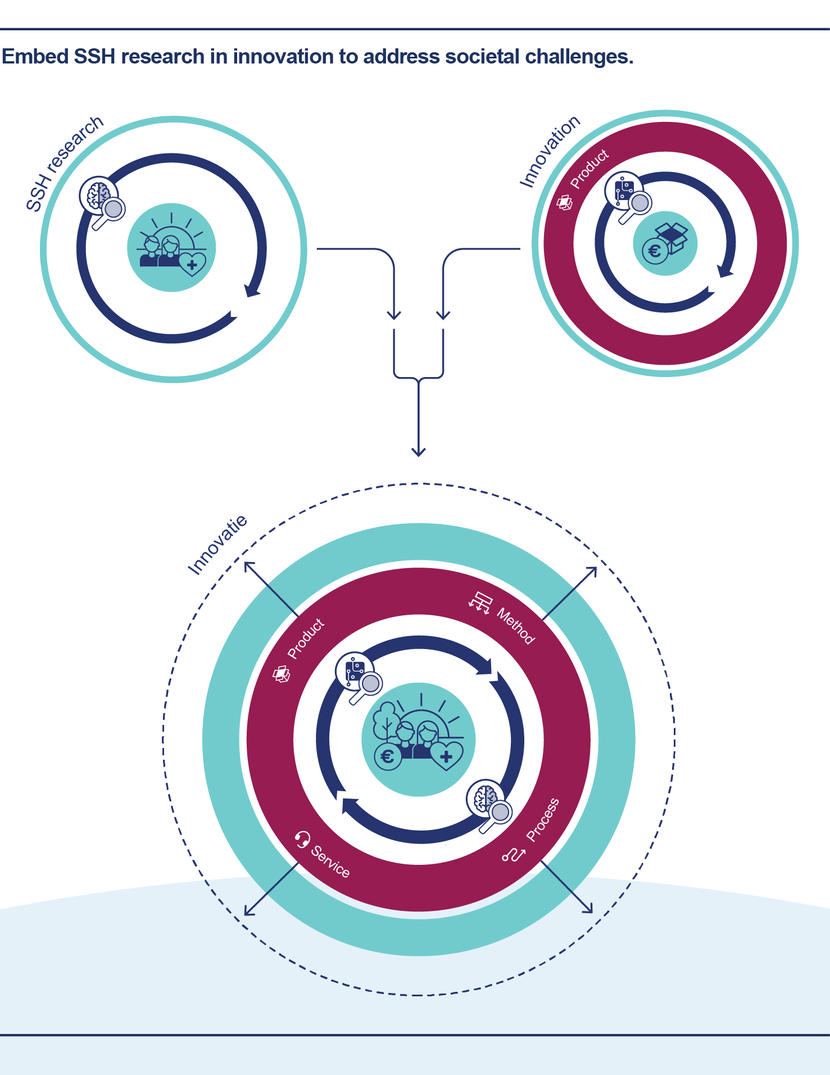Advice: Natural connections - Embed social sciences and humanities research in innovation
When tackling social issues, too little use is made of social sciences and humanities (SSH) knowledge.
This is the conclusion of the Advisory Council for Science, Technology and Innovation (AWTI) in the advisory report 'Natural conncections - Embed social sciences and humanities research in innovation'. The report contains recommendations for the government and scientists.
The AWTI believes it is very important that social sciences and humanities research is more firmly anchored in innovation practice. Current research and innovation policy does not sufficiently involve the domain and even creates obstacles. Conversely, innovation is not sufficiently commonplace within the domain of the social sciences and humanities.
Eppo Bruins, AWTI chairman:
This advice should contribute to the realisation that SSH research should be a logical part of innovation in society. A lot of innovation can't be done without SSH research.

When tackling complex social issues, attention to social and cultural aspects is crucial. But although research into these aspects is world-class in the Netherlands, it is not possible to put this to good use for smart and innovative solutions. What needs to be done?
The AWTI answers that question in this advisory report. When we think of innovation, we often think of the development of new technology and products, but it is also about new services, ideas, concepts, processes, methods, rules or policies. SSH research is often essential for all these forms of innovation, but at the moment, SSH research is not always a self-evident part of innovation.
Three recommendations to embed SSH research in innovation
In its advisory report, the AWTI makes three recommendations with a number of actions to better embed SSH research in innovation. They are addressed to several parties: the government, SSH researchers, trainers and knowledge institutions and departments. It is important to see the follow-up of the recommendations below in balance: it is about facilitating and challenging.
This means that, on the one hand, the AWTI argues for a broader conception of innovation that must be reflected in policy and practice, with which SSH researchers can better participate. On the other hand, the AWTI advises to challenge the SSH domain itself to achieve a further cultural change and to make innovation its own. This also creates a more natural involvement in innovation from that side.
- Adapt research and innovation policies to include relevant SSH research, for example by working with a broader understanding of innovation.
- Challenge SSH researchers to focus more on innovation, for example by connecting the SSH domain to design disciplines and by focusing more on innovation and impact in education.
- Actively involve SSH research in complex issues by adopting a systems approach to policy on complex issues and making better use of SSH research from public knowledge institutions.

